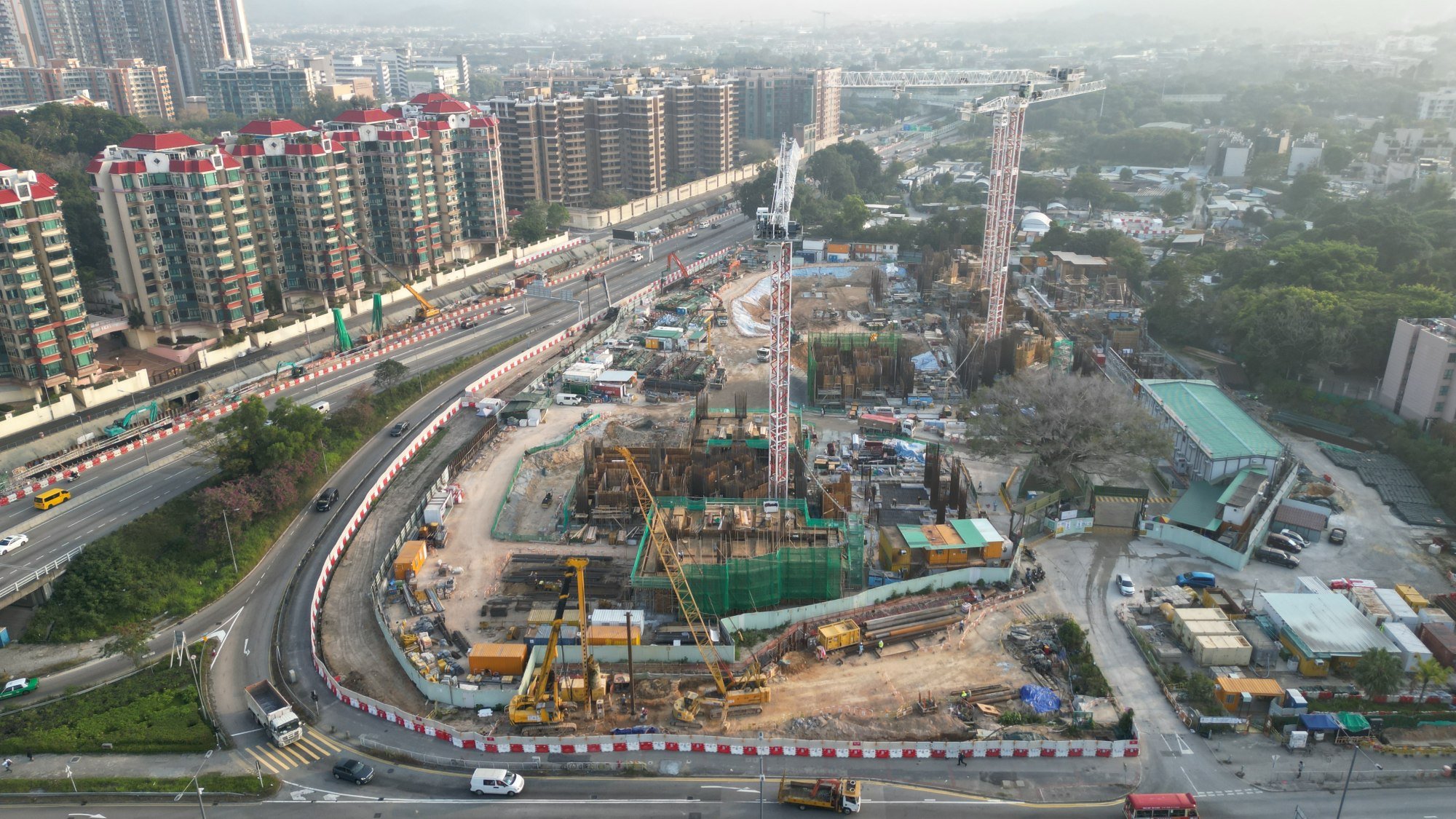
Budget 2023-24: Hong Kong records lowest land sale revenue since 2016, prompting conservative projection for coming financial year
- Government estimates it will generate HK$85 billion from land premium income, including sales of 18 sites in coming financial year
- Finance minister Paul Chan says conservative projection takes ‘reference from market situation’ and past performance of government’s land sale programme
Hong Kong has offered up a conservative estimate for its land revenue over the coming financial year after recording its lowest income from such sales in the past seven years.
Authorities planned to put 12 residential plots, as well as three commercial and three industrial sites on the market this year, partly contributing to a forecast HK$85 billion (US$10.8 billion) in land premium income, Financial Secretary Paul Chan Mo-po announced on Wednesday.
The estimate is less than the HK$120 billion forecast for 2022-23 from land revenue, which included the sale of 13 residential sites and four commercial plots.
“From previous experiences, land revenue drops when the property price goes down. The property price went down some 15 per cent last year but it was still at a high level. The property market has become more stable lately,” Chan said during his budget press conference.
“We have taken reference from the market situation and the land sale programme and tuned down the land revenue a bit.”
‘Happy Hong Kong’: 6 takeaways from Paul Chan’s budget 2023-24
But the sum for the coming financial year is closer to the revised estimate of HK$71.1 billion for the current one, marking the lowest sales figure in the past seven years.
The revised estimate accounted for only 60 per cent of the initial HK$120 billion forecast for 2022-23.
“It is mainly due to the lower-than-expected transaction prices of some land lots and the cancellation of some land sales,” Chan said.
Only 12 sites were sold out of the 17 offered up in last year’s land sale programme.
The government last April rejected tenders for a residential plot at Castle Peak Road in Tuen Mun and again last month for a site at Cape Road, Stanley, as the premium offers did not meet the official reserve price.
Two of the city’s major builders, the MTR Corporation and Urban Renewal Authority, also each withdrew from a tender earlier this year, with both railway property development and the revamping of built-up areas previously contributing to the government’s land revenue.

A government source emphasised that it “won’t sell land cheaply”, adding a press conference on Thursday would reveal more details about the land sale programme, including the locations up for grabs.
Some 20,550 private flats are expected to be built under this year’s programme, surpassing the government’s estimate for annual demand of 12,900 units.
During the budget announcement, the government also said it intended for 72,000 private homes to be built over the next five years of the scheme. Around 60 per cent of land would be supplied from new development areas, including Fanling North, Kwu Tung North, Hung Shui Kiu, Yuen Long South and Tung Chung, it added.
Surveyor Alnwick Chan Chi-hing, managing director at Knight Frank, said the land revenue forecast for the upcoming financial year was relatively “conservative”.
“As the value of commercial plots may not be as high as expected, while the residential market has started to show some stable signs, I think it is appropriate to set a rather conservative estimate,” he said.
As it happened: Hong Kong budget – spending vouchers, lower stamp duty among measures
The managing director explained that land set aside for commercial use under the programme could struggle to fetch the government’s expected price tag, given similar sites were widely available on the current market.
Authorities could also offer more incentives for the private to bid on its residential plots, such as excusing developers from building care homes for the elderly or performing slope maintenance at sites.
Hannah Jeong, head of valuation and advisory services at Colliers Hong Kong, said it was difficult to predict whether these residential plots could be sold.
Successful sales depended on whether the government offered accurate valuations for the plots based on the market conditions, in addition to whether there were fresh incentives to attract bidders, she explained.

